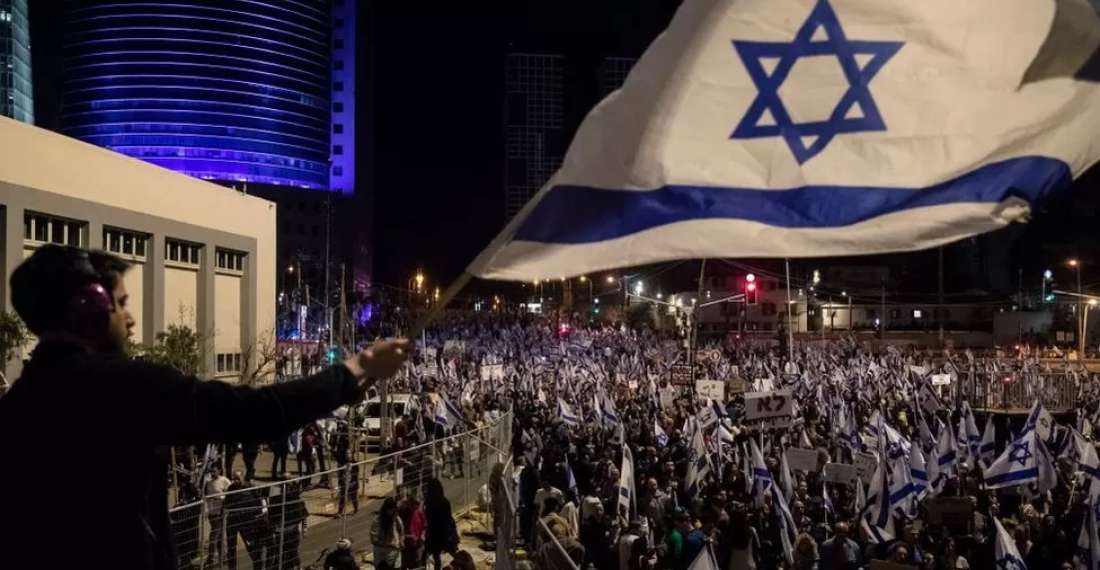On Saturday (11 March), Israel witnessed what organisers have called one of the biggest protests in the country’s history. Rallying in protest against a law reforming the judiciary, protesters are believed to have numbered over 500,000 nationwide.
The bill in question will give parliament the power to overturn any "unreasonable" decision taken by the Supreme Court on administrative matters with a simple majority vote. While the government argues this would stop "unelected judges" from taking wrongful decisions, many see it as a threat to Israel’s democracy as it gives huge judicial power to the executive.
Protests organised by the opposition parties and various organisations led citizens, some bearing the Israeli flag, to manifest their disapproval for the bill over the past few weeks. On Saturday, 200,000 people were reported to have protested just in Tel Aviv, while 50,000 protested in Haifa, in the north of the country. Protesters came from many sectors, including the health sector and fast-growing technology sector.
Speaking in the southern-central city of Be'er Sheva, former Prime Minister Yair Lapid, now leader of the main opposition party Yesh Atid, strongly criticised the law and the government, saying, "a wave of terrorism is hitting us, our economy is crashing, money is escaping the country. Iran just signed yesterday a new agreement with Saudi Arabia. But the only thing this government cares about is crushing Israeli democracy."
One day before, on Friday (10 March), Netanyahu met with Italian Prime Minister Giorgia Meloni on a diplomatic visit to Rome. The day before that, protesters in Tel Aviv blocked the road to the airport to prevent Netanyahu from leaving, resulting in him being airlifted to the airport. Netanyahu pointed the finger at political opponents, blaming them for encouraging the protests.
source: commonspace.eu with agencies
photo: Getty Images/BBC






